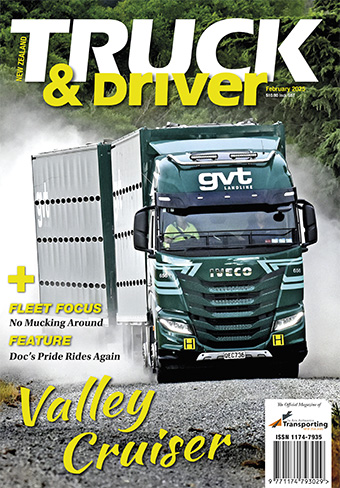
Zero emission trucks face challenges as light vehicle RUC exemption ends
Posted: 19-Jan-2024 |
The Government’s announcement that the Road User Charges (RUC) exemption for light electric vehicles and plug in hybrids will end in April is good news for the state of the roads. But it also highlights the challenges to zero emission truck uptake, says road freight peak body Ia Ara Aotearoa Transporting New Zealand.
Policy advisor Billy Clemens says the coalition Government had made the right call in ending the temporary RUC exemption for light EVs.
“The temporary RUC reduction was a helpful sweetener while light EV technology was in its early stages, and many consumers and businesses may have needed an additional incentive.
“With light EV uptake now building serious global momentum, subsidies simply aren’t necessary.”
“The exemption was always intended to be temporary, up until light EVs reached 2 percent of the light vehicle fleet. With that goal met, it’s appropriate that users start contributing to the upkeep of the roads they’re using, just as our truck operator members do. With our roading network in such a poor state of repair, we need that revenue to be used for maintenance and improvements.”
While light EV uptake is progressing well, Clemens says the Government needs to act swiftly to enable greater uptake of zero emission heavy vehicles that are currently exempt from paying RUC until December 2025.
“In the long term, we want to see zero emission trucks stand on their own two feet against internal combustion alternatives. However, the current cost premium and limited capability of battery electric and hydrogen vehicles mean they aren’t yet generally commercially viable. Transporting New Zealand is committed to the decarbonisation of road freight transport, but our members can’t do it alone.”
He says In addition to the heavy EV RUC exemption, there are plenty of ways the government can support positive change. These include introducing accelerated interest depreciation on low and zero emission vehicles; increasing axle weight limits for electric trucks with heavy batteries; permitting Class 1 licensed drivers to operate small electric trucks; amending the national EV charging strategy to focus more on heavy vehicles; and maintaining co-funding through EECA.
“These practical changes would support road transport companies to transition towards lower and zero carbon trucks, and help New Zealand meet our ambitious decarbonisation targets,” Clemens says.
“We can make 2024 a big year for low and zero emissions trucks in New Zealand.”




 + EQUIPMENT GUIDE - FREE
+ EQUIPMENT GUIDE - FREE
